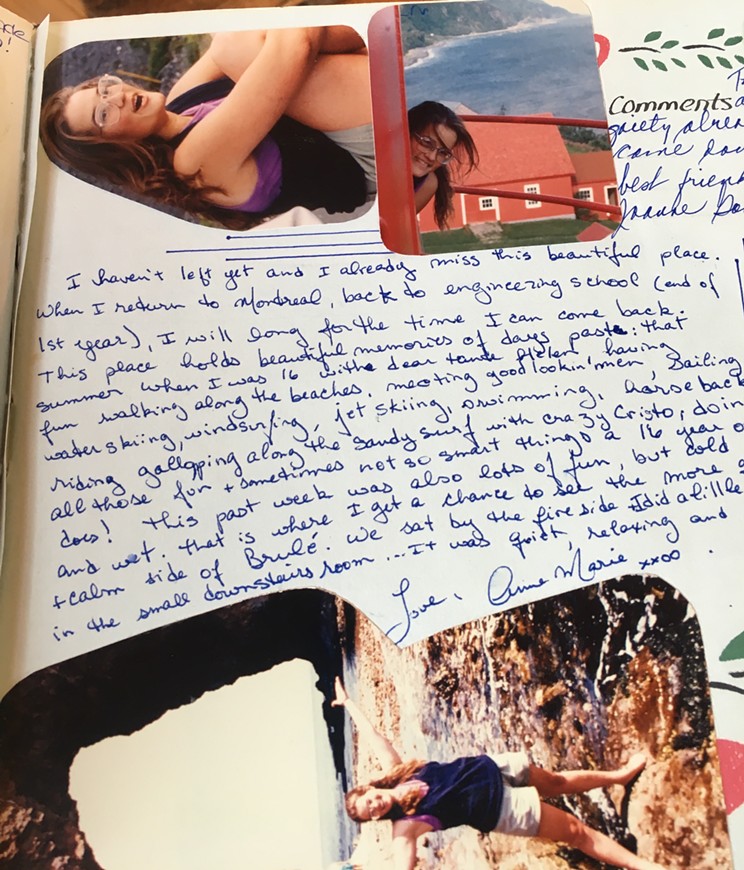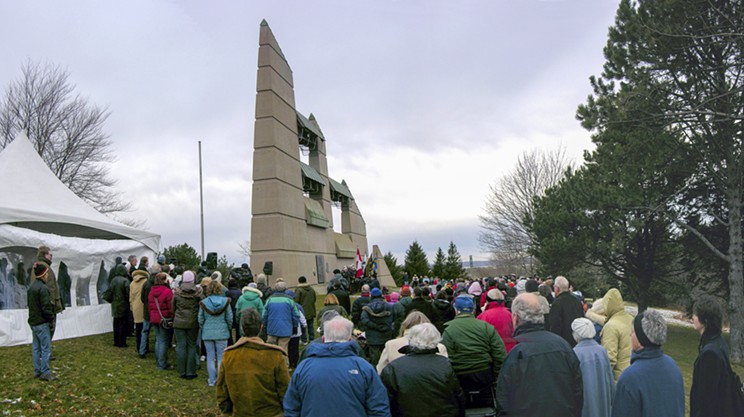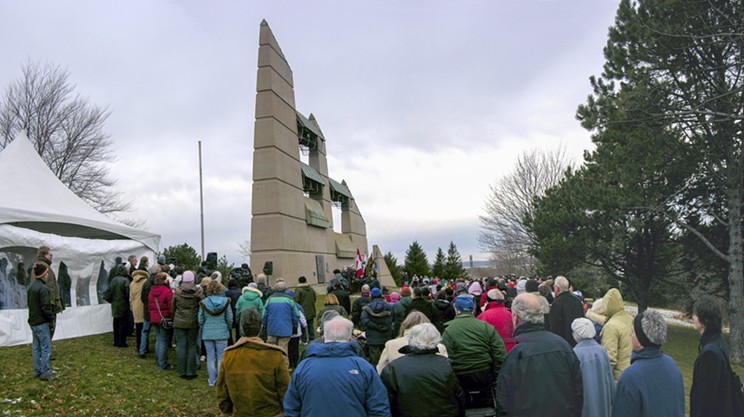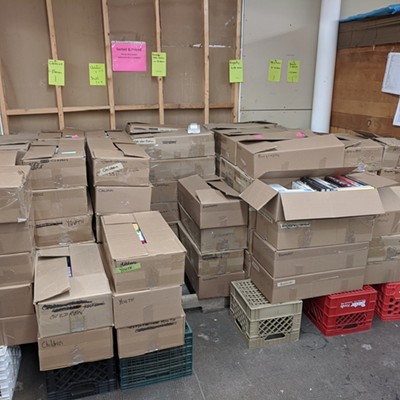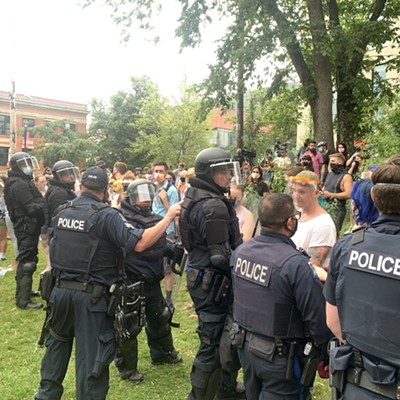There are some dates that just have baggage.
December 6 has SO much baggage.
We mark the 100th anniversary of the Halifax Explosion on December 6.
A French ship was packed with small containers of picric acid, TNT, guncotton and benzo that were dangerous enough on their own, but together would form the most deadly explosion the world had ever known, or would know for quite some time. The volatiles were packed too tightly and carelessly by Americans into a vessel that could not hold them. No convoy would travel with that ship for fear of what might happen. It was not allowed to dock on the US east coast. When the ship blew, it wiped out more than 2,000 innocent people.
Had those munitions arrived at their intended destination rather than blowing up accidentally here, in Halifax, would we expend so much time and attention on memorials? If they had taken 20,000 lives elsewhere rather than 2,000 lives here, would we care as much? I doubt it.
December 6 also marks the 28th anniversary of the Montreal massacre.
December 6, 1989, is the day that a single man went on a shooting rampage and killed 14 innocent young women and injured 14 others in just under 22 minutes. Disempowered and disenfranchised because women were taking engineering places at École Polytechnique, he lashed out. Less than 10 percent of the places were “taken” by women. Yet that was too many for him. Never mind that those 10 percents were the top 10 percent. Never mind all the odds they had to beat to be there.
How many women have to suffer violence and how close does it need to be for it to matter? How violent must the violence be to get our attention? And to hold it? At what point is it a catalyst for change?
The photo above is of the last entry Anne-Marie Edward made in the family cottage’s guestbook, in nearby Cap Brulé, New Brunswick. She was a real person. Stop now; take a moment and read it. She was everything any of us wants our daughters to be. She was smart. She was a varsity athlete, buried in her ski-team jacket. She was determined and kind. She was headstrong. She would have been 50 next October.
What could she have done? What difference would she have made in the world? Her mother, a talented pianist, contemplates that question as the music and grief pour out of her.
Her mother, father and brother have bravely marched on and lived their lives. Her mom, Suzanne, has travelled everywhere and spoken to everyone who will listen both about gun control and about violence against women. It’s important for her to know that her daughter made a difference. It’s important for her to know that Anne-Marie did not die in vain. She was one of the driving forces behind the gun registry that the last government scrapped.
Anne-Marie’s parents are getting older now. Like so many of us on this coast, they are sailors. They are probably going to sell their boat this year. It’s time. As we trimmed the sails and tacked across Shediac Bay recently, I couldn’t help but wonder how much they wished it was Anne-Marie and not me at the helm. My heart broke for them. It breaks for her. It breaks for us.
Violence against women starts with small things. It’s not women we know and love that are the original targets. The tiny containers of thinly veiled violence are never intended to be a bomb that blows up a large number of women. It originates as a collection of many small acts and tiny toxic micro-aggressions. Each on their own, they don’t seem to be too dangerous. We accept them every day in our society. However, it blows up when all of those tiny containers are packed too tightly into a vessel that cannot hold them. It’s a vessel no one wishes to escort. We don’t want it to dock here. How much damage it causes, and to whom, is up to you. How much it matters if that happens here–or there—is also up to you.
If you stand by when the smallest aggression is packed in, don’t be surprised if you find yourself blinded by the bomb when it eventually detonates.
Maybe it’s time this ship sailed too. It starts with small things, and it can also end with them.
Voice of the City is a platform for any and all Halifax individuals to share their diverse opinions and writings. The Coast does not necessarily endorse the views of those published. Our editors reserve the right to alter submissions for clarity, length, content and style. Want to appear in this section? Submissions can be sent to [email protected].

